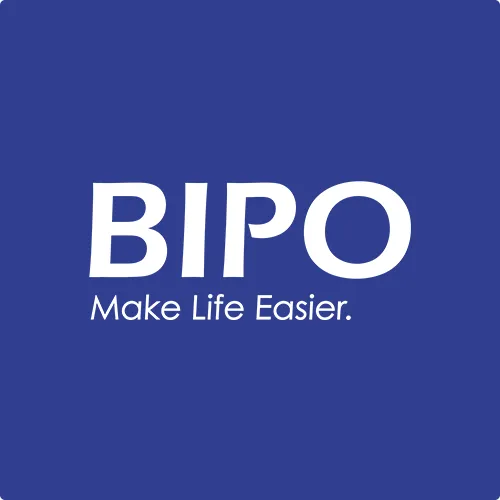The modern workplace is evolving, and with it, the expectations and needs of employees. Flexible work arrangements (FWAs) are no longer a perk but a business priority. Balancing employee needs with productivity goals benefits both employees and employers. As businesses navigate and adapt to changes in today’s workplace landscape, understanding and implementing effective FWA strategies is crucial for attracting, retaining, and engaging top talent.
现代职场正经历变革与转型,员工的期望与需求也随之提升。灵活工作制(FWAs)不再仅仅是一种福利,而已成为企业运营的核心战略。在平衡员工需求与企业生产力目标的过程中,FWAs能够实现双赢局面。面对当前职场环境的快速变化,深入理解并有效实施这项策略,是吸引、留任和激励顶尖人才的关键所在。
The Impact of FWAs on Employers and Employees
灵活工作制对雇主和员工的影响
Flexible work arrangements offer a multitude of benefits for both employers and employees.
灵活工作制为雇主与员工双方创造了多重价值。
For employers, FWAs can lead to:
对雇主而言,FWAs带来的主要优势包括:
- Improved employee morale and engagement
- Increased productivity and efficiency
- Enhanced talent attraction and retention
- Reduced overhead costs
- 显著提升员工的工作积极性
- 有效增强企业生产力与运营效率
- 显著提升企业吸引并留住优秀人才的能力
- 大幅降低企业运营成本
Employees also reap significant benefits from FWAs, such as:
对于员工而言,FWAs带来的主要益处包括:
- Better work-life balance
- Reduced commuting time and costs
- Greater flexibility to manage personal commitments
- Increased job satisfaction
- 实现更优质的工作与生活平衡
- 显著缩短通勤时间并降低相关费用
- 为处理个人事务提供更大的灵活性
- 有助于提升员工的工作满意度
However, FWAs also present challenges, such as potential communication barriers and the need to maintain team cohesion. Addressing these challenges requires clear communication, effective collaboration tools, and a supportive workplace culture.
然而,FWAs也可能面临一定的挑战,例如潜在的沟通障碍以及维持团队凝聚力的需求。为应对这些问题,需要企业建立清晰的沟通机制、应用高效的协作工具,并打造支持性、包容性的职场文化氛围。
Common Types of FWAs
常见的灵活工作制类别

Source: Freepik
Flexible work arrangements redefine the traditional 9-to-5, in-office model, offering a variety of alternative ways to work. In Singapore, FWAs are broadly categorised into 3 main types – time-based FWAs, which allow employees to have flexible working hours, location-based FWAs, which allow employees to work from different locations, and workload-based FWAs, which involve variations in the amount of work employees complete.
灵活工作制突破了传统的朝九晚五、办公室工作模式,为员工提供了多样化的工作方式。在新加坡,灵活工作制主要分为三大类:基于时间的FWAs,允许员工灵活调整工作时间;基于地点的FWAs,支持员工在不同地点完成工作;以及基于工作量的FWAs,通过灵活调整员工完成的工作量满足特定需求。
The various types of FWAs offer a range of benefits tailored to different needs, creating a more adaptable, satisfied, and productive workforce.
不同类别的FWAs能够针对多样化需求提供相应的优势,帮助企业打造更加灵活、高满意度和高生产力的员工团队。
Common types of FWAs within each category include:
灵活工作制的常见形式包括:
Time-based FWAs
基于时间的灵活工作制
- Flexi-time: Allows employees to set their own start and finish times while working the same total hours.
- Compressed Work Schedule: Employees complete the same total hours over fewer days.
- Staggered Hours: Employees adjust their start and end times to better fit personal commitments.
- 弹性工作制:允许员工根据自身需求设定上下班时间,同时完成规定的总工时。
- 压缩工作制:员工通过减少工作天数完成同等的总工时。
- 错峰工作制:员工根据个人事务需求调整工作的开始时间与结束时间。
Time-based FWAs help employees balance their work and personal lives, reducing stress and increasing job satisfaction.
基于时间的FWAs能够有效帮助员工平衡工作与个人生活,降低压力并显著提升工作满意度。
Location-based FWAs
基于地点的灵活工作制
- Telecommuting: Employees work from home or other locations, using technology to stay connected with their teams and clients.
- 远程办公:员工通过技术手段,在家中或其他地点工作,与团队及客户保持实时联系。
Location-based FWAs reduce commuting time and costs, offering a more flexible work environment that can boost productivity.
基于地点的FWAs能够显著降低通勤时间和成本,为员工提供更灵活的工作环境,从而有效提升工作效率与成果。
Workload-based FWAs
基于工作量的灵活工作制
- Part-time Work: Employees work fewer hours, typically not exceeding 35 hours per week.
- Job Sharing: Two or more part-time employees share the responsibilities of one full-time position.
- 兼职工作:员工以较少工时工作,通常不超过每周35小时;
- 职位共享:由两名或更多兼职员工共同分担一个全职岗位的职责。
Workload-based FWAs provide a lighter workload for those with additional commitments outside of work, allowing employers to retain valuable staff who might otherwise leave the workforce.
基于工作量的FWAs为有额外事务需要处理的员工提供更轻松的工作安排,同时帮助企业留住可能因外部事务而退出职场的核心人才。
Understanding FWAs in Singapore: Tripartite Guidelines and Beyond
解读新加坡的灵活工作制:从三方准则到实践应用

Source: jcomp on Freepik
Under these guidelines, employers must evaluate all FWA requests submitted by employees and communicate their decision within two months of receiving the request. Replacing previous recommendations, the guidelines offer improved transparency and understanding for both parties.
根据准则要求,雇主需对员工提交的所有申请进行评估,并在接到请求后的两个月内明确答复。这一准则取代了以往的建议性指导,进一步为雇佣双方提供了更高的透明度和更清晰的理解。
To qualify as a formal FWA request, the submission must specify the date, the type of arrangement (including its frequency and duration), the reason for the request, and relevant start and end dates. Requests that do not meet these criteria are not considered formal under the guidelines.
正式的灵活工作制申请需包含以下信息:申请的具体日期、安排类型(包括频率与时长)、申请理由以及相关的起止日期。凡不符合上述要求,将不被视为正式申请,亦不受准则保护。
Steps to Submit a Formal FWA Request
提交正式灵活工作制申请的步骤
- Employee submits a formal FWA request based on the guidelines
- Employer reviews and evaluates the FWA request according to business priorities and needs
- Employer provides the outcome of the FWA request within two months from the submission date
- If the request is denied, the employer is encouraged to discuss possible alternatives with the employee
- 员工根据准则提交正式申请;
- 雇主依据业务优先级和实际需求对请求进行审查和评估;
- 雇主在请求提交后两个月内反馈处理结果;
- 若请求被拒,建议雇主与员工协商可能的替代方案。
Roles and Responsibilities of Employees and Employers
员工与雇主的职责与义务

Source: tirachardz on Freepik
Employees are encouraged to make FWA requests responsibly, taking into account how their arrangements may affect their performance, as well as any impact on their colleagues and clients.
员工应以负责任的态度提出灵活工作制申请,并综合考虑相关安排可能对自身工作表现的影响,以及对同事和客户可能带来的影响。
Once employees have successfully completed their probation period, they are eligible to formally request FWAs under the guidelines.
员工在顺利通过试用期后,即可根据准则要求正式提出灵活工作制的申请。
Employers are encouraged to provide information about FWAs and assess requests objectively, focusing on job-related factors and potential business impacts. Requests should be discussed openly, aiming for mutual agreement. If rejected, decisions must be based on reasonable business grounds, such as cost or job role feasibility, and communicated in writing within two months. Employers should explain rejections and explore alternatives to support workplace harmony.
雇主应主动向员工提供有关灵活工作制申请的详细信息,并以客观态度评估员工的申请,重点关注与工作相关的因素及可能对业务产生的影响。针对申请,应以开放的方式进行讨论,力求达成双方的共识。如果拒绝该申请,必须基于合理的业务理由,例如成本限制或岗位职责的可行性,并需要在两个月内以书面形式通知员工。此外,雇主应对拒绝原因进行充分说明,并探讨其他可能的替代方案,以促进职场的和谐氛围。
Leveraging HRMS to Manage FWAs Effectively
借助人力资源管理系统高效管理灵活工作制
HR Management Systems (HRMS) like BIPO HRMS can streamline and enhance the way businesses manage FWAs in Singapore. BIPO HRMS includes automation features that streamline scheduling, ensure compliance, and enhance operational efficiency – all while fostering a more agile and employee-centric workplace.
BIPO HRMS人力资源管理系统(HRMS)可以有效简化并优化企业在新加坡灵活工作制的管理流程。BIPO HRMS集成了自动化功能,不仅提升了排班效率和合规性,还增强了运营效能,同时推动企业向更敏捷、更以员工为中心的方向发展。
BIPO HRMS includes features such as:
BIPO HRMS的核心功能包括:
- Time and attendance tracking: Monitor employee hours accurately, regardless of location or work schedule.
- Leave management and approval workflows: Streamline leave requests and approvals for various FWA scenarios.
- Performance tracking and goal setting: Set clear expectations and track performance for remote and flexible workers.
- Communication and collaboration tools: Foster seamless communication and collaboration among team members, regardless of their work location.
- 考勤管理:无论工作地点或排班如何,精准记录员工工作时长;
- 休假管理与审批流程:针对多种FWAs场景,简化请假申请与审批流程;
- 绩效管理与目标设定:为远程或灵活工作的员工设定明确目标并监控其绩效;
- 沟通与协作工具:确保团队成员无论身处何地,都能实现无缝的沟通与协作。
Specifically, BIPO HRMS offers functionalities within the eForm, Personnel Hub, and Letter modules to simplify FWA requests and approvals. This means:
特别是,BIPO HRMS 在电子表单、个人中心和信息模块中提供了简化灵活工作制申请和审批的功能。
- Employees can easily raise FWA requests through a dedicated form accessible from their HRMS homepage. Once approved, the Leave module allows them to apply for the arrangement, even supporting recurring requests like “Work From Home every Monday.”
- Employers/managers can efficiently approve or reject FWA requests with clear reasons, all within the HRMS. This eliminates manual paperwork and streamlines the tracking of FWA requests.
- 员工可以通过HRMS主页上的专属表单轻松提交FWA申请。请求获批后,系统的“休假模块”允许员工申请具体安排,甚至支持“每周一在家办公”等重复性请求。
- 雇主或管理者可以在HRMS系统内高效审批或拒绝FWA申请,并提供明确的理由。这不仅消除了手动处理文书工作的繁琐,简化了FWA申请的追踪流程。
Embracing FWAs: A Strategic Advantage for Businesses
推行灵活工作制: 企业的战略优势

Source: DC Studio on Freepik
In today’s talent-driven market, adopting flexible work arrangements is the cornerstone of workplace success. Providing employees with FWAs not only meets evolving expectations but also enhances engagement and team performance, ensuring businesses stay competitive and resilient.
在当前以人才为导向的市场中,推行灵活工作制已成为职场成功的重要基石。为员工提供灵活工作制不仅能满足其不断变化的工作期望,还能够显著提升员工的参与感与团队的整体绩效,帮助企业保持竞争力和韧性。
BIPO HRMS, with its comprehensive suite of features and multi-country payroll capabilities, empowers businesses to implement and manage FWAs effectively. Explore how BIPO can support your FWA initiatives and help you build a thriving, adaptable workforce.
BIPO HRMS凭借全面的功能模块与跨国薪资管理能力,能够为企业高效实施并管理灵活工作制提供支持,助力企业的发展战略,打造一支充满活力并高度适应变化的团队。



































